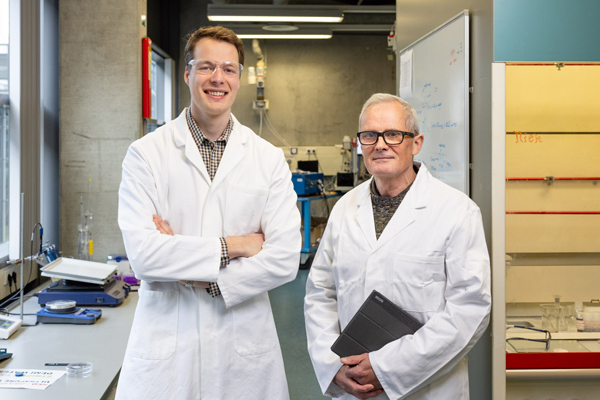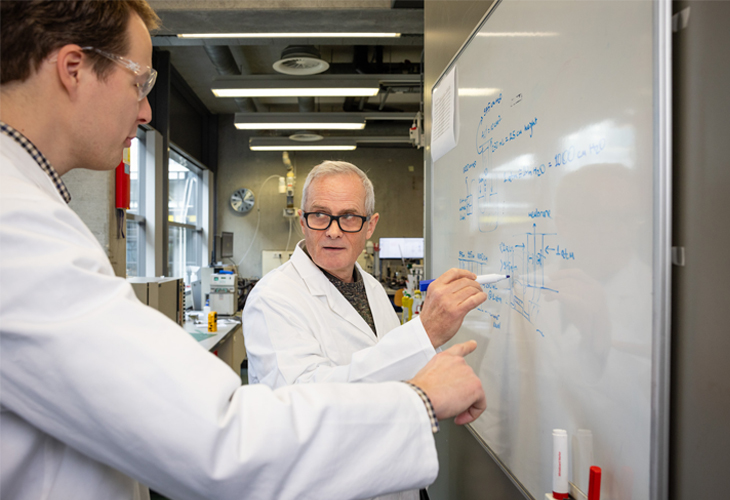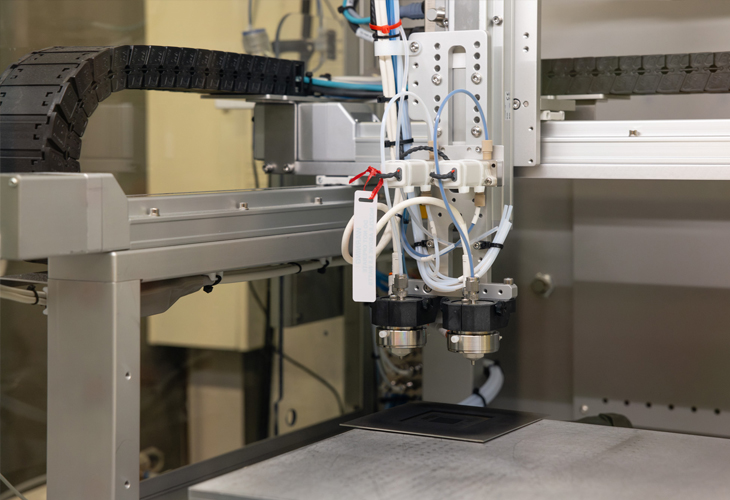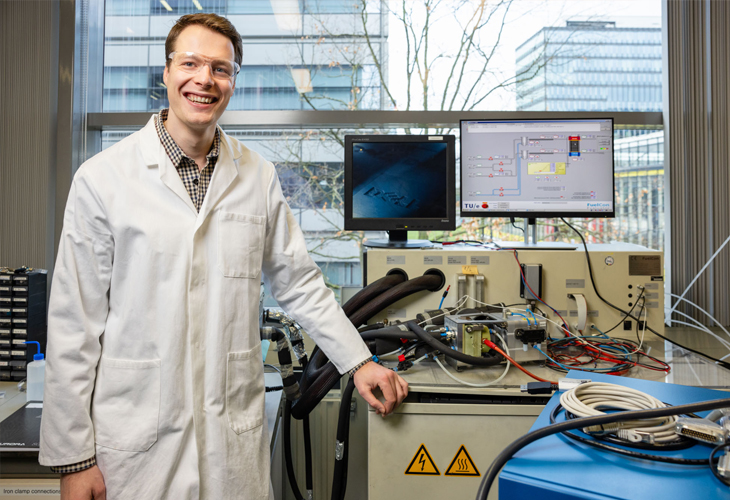Shaping the future of renewable energy: the challenge of green hydrogen
14 March 2025

As the world races to combat climate change, green hydrogen has emerged as a promising energy carrier in the transition to cleaner energy systems. However, producing green hydrogen remains a significant challenge. Engineers like Rik van Gorp , are determined to overcome the hurdles and make hydrogen a key component in the transition towards a sustainable energy economy.
Van Gorp’s journey began at Eindhoven University of Technology, where he earned a Master’s degree in Chemical Engineering. Like many aspiring engineers, he was driven by a desire to make a tangible impact on society. He first became involved in energy research during a project focused on redox flow batteries, a technology designed to store renewable energy. His early career also included an internship at ITER, a large international nuclear fusion project in France. During his time there Van Gorp was impressed by the rigor and scale of the ITER project. The experience reinforced his belief that fast deployment of renewable energy solutions was crucial to address our current energy crisis.

Entrepreneurial mindset
It was at this pivotal moment that his former mentor reached out with an exciting opportunity: to explore the commercialization of innovative hydrogen fuel cell components. This resonated with Van Gorp’s entrepreneurial mindset, leading him to spend a year on customer interviews, funding acquisition and technology development. He then enrolled in the Faculty of Impact (FOI) program with a proposal centered on hydrogen fuel cell components for heavy-duty applications like trucks and ships.
A strategic shift in focus
As Van Gorp’s research progressed, significant challenges emerged. The rapid advancement of battery technology was quickly outpacing hydrogen fuel cells and became a potent competitor in the market of heavy-duty transportation. Additionally, the materials used in the design of these fuel cells contained PFAS, a group of synthetic chemicals which the European Union is considering to strictly regulate or even ban due to potential health and environmental concerns.
Consequently, fuel cell manufacturers were faced with more pressing challenges than the specific improvements Van Gorp was developing, prompting him to rethink his approach. He redirected his attention toward innovating the reactor design for alkaline water electrolysis. His goal was to develop a novel approach that would enable more efficient electrolysis using less expensive components. Electrolyzers use electricity to split water into hydrogen and oxygen, creating hydrogen that can be applied across multiple sectors, including fertilizer production, long-duration energy storage, methanol synthesis, and potentially transportation.

From FOI to a PhD: advancing the technology
Van Gorp was already halfway through the FOI program when he made this strategic shift. When the program concluded, he realized that while he was on the right track now, the technology was not yet market-ready. With the support of his professor, dr. Antoni Forner-Cuenca, the program director of The Gate, Jeroen van Woerden, and FOI advisor Frans Nauta, Van Gorp decided to pursue a PhD, allowing him to further develop the electrolyzer technology.
Together with his colleague, Niek van Leth, Van Gorp is now diligently working in the lab to develop the novel components that make their innovative reactor design possible. The early lab results are promising, and Van Gorp is optimistic that his technology could be commercially viable within the next two years. “I’m confident that with further refinement and testing, we’ll be able to offer an electrolyzer that meets market demands for cost and scalability,” he says.

The Faculty of Impact experience
Van Gorp credits the two years he spent in the FOI program with transforming his approach to innovation and research. “If it wasn’t for the program, I might have not developed the skills to effectively evaluate the commercial viability of technological innovations,” he reflects. “The insights I gained during the program helped me in shaping my current PhD path. I look at my research from a different perspective: How can I make an impact? And what do we need to develop to make this innovation both economically and socially relevant?”

Looking ahead: a future in hydrogen innovation
Van Gorp is confident that his PhD will eventually lead to the creation of a startup, allowing him to bring the electrolyzer technology to market and contribute to the global energy transition. “The energy transition is happening, and hydrogen is poised to play a big role in our future chemical industry,” he says. “We’re working on an important piece of the puzzle, and I’m excited to see how our innovation can contribute to shape the future of sustainable energy.”